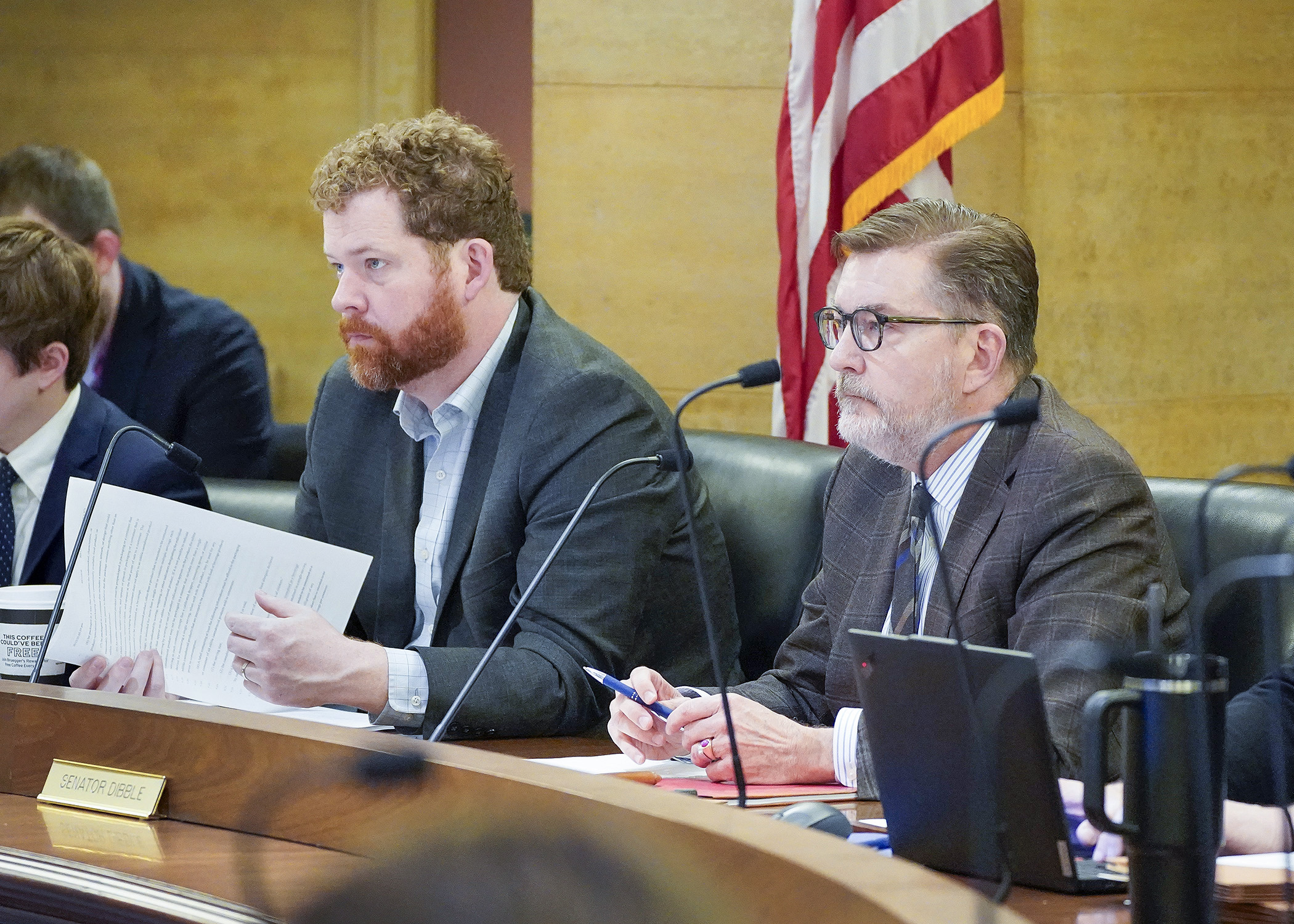Conferees OK cannabis agreement as Minnesota readies for adult-use market

Tweaks are needed to the existing cannabis laws as Minnesota gears up for the launch of the cannabis licenses.
To that end, the Office of Cannabis Management has requested a number of law changes this session. Those requests made it into a conference committee report adopted by a conference committee Friday.
Rep. Zack Stephenson (DFL-Coon Rapids) and Sen. D. Scott Dibble (DFL-Mpls) sponsor the cannabis policy bill, HF1615/SF2370*.
Rep. Nolan West (R-Blaine) is glad the agreement directly addresses current issues happening with cannabis in the state, but there are still problems that need to be worked on. He’s concerned that a lot of startup cannabis businesses are going to fail despite legislators’ best intentions because of the state’s cannabis business model.
“My frustration with the current direction… is that it’s so overly regulated to create what I would argue is a ‘fantasy situation’ where we’re going to be an exclusively craft industry,” West said.
[MORE: Houses passes cannabis policy bill]
Eric Taubel, interim director of the Office of Cannabis Management, said the agreement would help the office with the cannabis licensing rollout, social equity applicants, medical cannabis and protections for medical cannabis patients.
“OCM continues to make significant milestones in the implementation of the cannabis market and this legislation will support our shared goal of launching a safe well-regulated market,” he said.
Additionally, the Cannabis Expungement Board supports it.
Mark Haase, deputy director and general counsel for the board, said the agreement would address some inconsistencies between legislative intent and the law as written to expunge felony cannabis convictions if they meet the criteria. It would also address cannabis convictions that are part of cases with multiple charges, which the court can’t currently seal. In the agreement, those cases would be sealed if the other charges are cannabis-related and were dismissed.
In addition to technical changes, the agreement would, in part:
- create a lower-potency hemp wholesaler license;
- allow people who had an adjudicated cannabis-related sentence to be social equity applicants;
- allow vendors to provide samples at cannabis events;
- allow manufacturers in Minnesota to export low-potency hemp products out of the state that aren’t compliant in Minnesota;
- allow testing facilities to begin testing while in the accreditation process; and
- allow a beverage to be one serving with no more than 10 milligrams of THC.
An issue that was brought to legislators’ attention too late to address this session is local governments in Minnesota preventing cannabis businesses from opening in their communities, said Rep. Jessica Hanson (DFL-Burnsville). It’s creating a patchwork of cannabis prohibition that wasn’t intended by the state law.
Legislators left zoning for cannabis businesses up to city and county governments when it passed the law legalizing adult-use cannabis. However, legislators are now hearing that cities and counties are using their zoning authority to prohibit cannabis businesses or creating complicated local requirements for cannabis businesses. Some local governments are intentionally misinterpreting state laws, knowing that the only thing that’ll stop them from doing so is a lawsuit, Hanson said.
“Too many I’ve heard personally all but bragging about how they are finding a way to outwit the state and to find their ways around the law,” she said.
She encouraged people to push back on their local governments and hopes the Legislature and local officials can work together to address concerns in the 2026 session.
Related Articles
Search Session Daily
Advanced Search OptionsPriority Dailies
Legislative leaders set 2026 committee deadlines
By Lisa Kaczke Legislative leaders on Tuesday officially set the timeline for getting bills through the committee process during the upcoming 2026 session.
Here are the three deadlines for...
Legislative leaders on Tuesday officially set the timeline for getting bills through the committee process during the upcoming 2026 session.
Here are the three deadlines for...